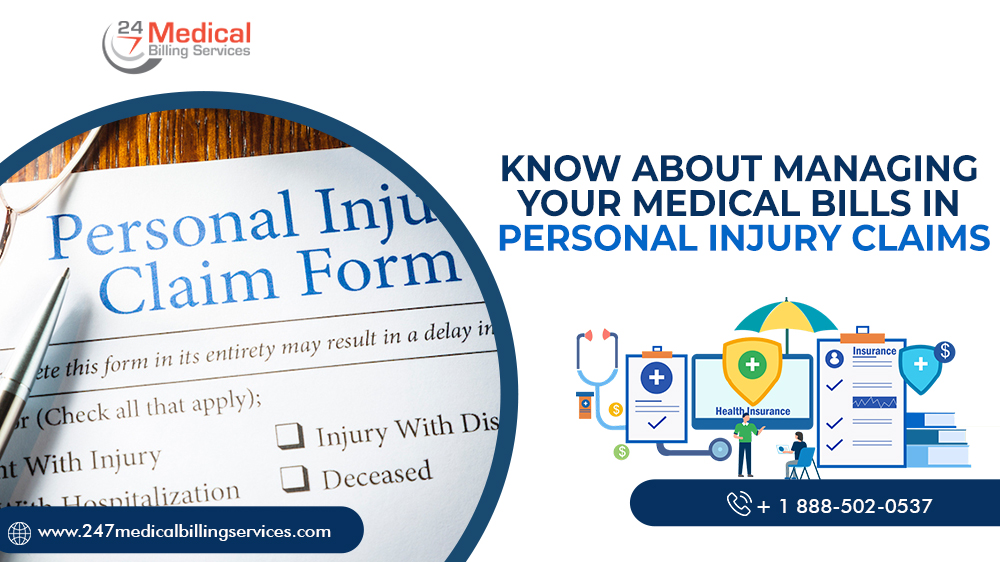
Know about Managing your Medical Bills in Personal Injury Claims
Getting injured in an accident might be one of your most traumatic experiences. However, overdue medical expenses might add to the stress as most people do not have thousands of dollars.
A study found that the median cost of an emergency hospital visit is $1,233, with more severe injuries costing much more.
Fortunately, you can file a personal injury claim to seek compensation for injuries experienced due to someone else's negligence. However, filing a Personal Injury Claim in order to receive a settlement can be time-consuming. Your medical expenditures may mount while you wait.
There are specific tips that you should know to manage your bills throughout a personal injury claim successfully, and these are as follows:
- Proper Documentation
Your insurance company or the negligent party’s insurance company will endeavor to pay you as little as possible. If you don't have documentation, they will underpay you, which could jeopardize your recovery and future financial health.
What you can claim will be primarily determined by the facts of your case, although you may be able to recover the following:
- Charges for hospital rooms
- Costs of using an emergency room
- Specialist visits
- Desired Medical equipment
- Transportation expenses
- Fees for an ambulance
- Physical therapy expenditures
- Medications that are required
- X-rays, MRIs, and other laboratory tests
- Submission of Bills
Furthermore, if you have Medical Payments Coverage (Med Pay), you can send your co-pay bills there to be paid while you wait for your case to be determined.
Even though your case is currently pending, your personal health insurance should pay a large portion of your expenditures in most cases. However, depending on the specifics of your case, you may be able to have your bills postponed until your personal injury case is settled.
As health insurance can sometimes refuse to pay your bills, you should review your policies and coverage restrictions to determine when an insurer is unfair or unreasonable.
- Beware of Signing Medical Liens
Furthermore, some medical treatments are not covered by health insurance. If you are obliged to pay out-of-pocket fees, you might consider signing a medical lien. A medical lien allows you to continue receiving necessary care without paying enormous amounts of money.
When you file a medical lien, your lawyer and doctor will work out a financial arrangement in which your lawyer will pay your doctor once your lawsuit is finalized with the money you won.
However, you should be aware of medical liens, especially if a lawyer does not represent you. This is because many healthcare providers can overcharge you and add more money to your existing bills, which you must pay.
How Does the Personal Injury Billing Process Work?
When it comes to addressing your medical bills and personal injury claims, you should check for the following four aspects:
- The first aspect medical billing service providers look for is Personal Injury Protection (PIP) on your motor insurance. If you have PIP, they will begin covering your medical expenditures as they arise.
- They can also charge your health insurance if you do not have PIP, but you may be responsible for your deductible or co-pays.
- You can always pay out of pocket if you do not have PIP or health insurance.
- Finally, you can also sometimes persuade providers to hold bills and defer payment until your case is completed for individuals who cannot afford to pay out of pocket.

.png)